Overview
Kilimanjaro Umbwe Route offers a challenging 6-day trek through scenic landscapes, steep trails, and an exhilarating climb to Uhuru Peak. is known for its steep and challenging ascent, making it suitable for experienced trekkers. Over six days, climbers will experience breathtaking landscapes while acclimatizing to reach the summit of Kilimanjaro.
Day by day itinerary
Day 1: Arrival in Moshi
- Elevation: 890m (2,920ft)
Upon arrival at Kilimanjaro International Airport, you will be transferred to your hotel in Moshi. After checking in, meet your mountain guide for a briefing and final gear check. Rest and prepare for your adventure. Overnight at the hotel in Moshi.
Day 2: Umbwe Gate to Umbwe Camp
- Elevation: 1,640m to 2,850m
- Distance: 11 km
- Hiking Time: 5-7 hours
- Habitat: Rainforest
Start your Kilimanjaro Umbwe Route trek at Umbwe Gate. Hike through lush rainforest, enjoying the diverse flora and fauna. Arrive at Umbwe Camp for dinner and overnight.
Day 3: Umbwe Camp to Barranco Camp
- Elevation: 2,850m to 3,900m
- Distance: 10 km
- Hiking Time: 6-8 hours
- Habitat: Moorland
Trek to Barranco Camp, passing through moorland with stunning views. This day provides great acclimatization as you ascend gradually. Enjoy the night at Barranco Camp.
Day 4: Barranco Camp to Karanga Camp
- Elevation: 3,900m to 4,000m
- Distance: 5 km
- Hiking Time: 3-5 hours
- Habitat: Alpine Desert
Climb the Barranco Wall, a fun and challenging section. Afterward, continue to Karanga Camp for lunch and rest. Overnight at Karanga Camp.
Day 5: Karanga Camp to Barafu Camp
- Elevation: 4,000m to 4,673m
- Distance: 4 km
- Hiking Time: 3-4 hours
- Habitat: Alpine Desert
Make your way to Barafu Camp, where you’ll rest and prepare for the summit attempt. Enjoy dinner and sleep early to get ready for the night climb.
Day 6: Barafu Camp to Uhuru Peak to Mweka Camp
- Elevation: 4,673m to 5,895m to 3,068m
- Distance: 5 km ascent, 12 km descent
- Hiking Time: 7-8 hours ascent, 4-6 hours descent
- Habitat: Arctic
Summit day! Depart early for the final push to Uhuru Peak, the highest point in Africa. After celebrating at the summit, descend to Mweka Camp for a well-deserved rest.
Day 7: Mweka Camp to Mweka Gate
- Elevation: 3,068m to 1,640m
- Distance: 10 km
- Hiking Time: 3-4 hours
- Habitat: Rainforest
The final descent takes you through the rainforest to Mweka Gate, where you’ll receive your summit certificate. Transfer back to Moshi for relaxation and celebration for your Kilimanjaro Umbwe Route trek.
Inclusions
- Transport: Return transfers from Arusha to the Kilimanjaro National Park gate.
- Accommodation: Camping accommodations during the trek, including tents and sleeping gear.
- Meals: Full-board meals throughout the trek, including breakfast, lunch, and dinner.
- Park Fees: All necessary entrance fees to Kilimanjaro National Park.
- Guides and Porters: Services of a professional mountain guide and support staff.
- Drinking Water: Safe drinking water supplied during the trek.
- Emergency Equipment: First aid kit and oxygen supply in case of emergencies.
- Government Taxes: All applicable taxes and levies.
Frequently Asked Questions
1. What are Kilimanjaro group tours?
Kilimanjaro group tours are shared trekking adventures where climbers join a guided group to experience the mountain together, making it an affordable and social option.
2. How long do group tours take?
Group tours typically range from 6 to 8 days, depending on the chosen route and whether additional acclimatization days are included for better summit success rates.
3. What is the difficulty level of group tours?
The difficulty varies by route, but group tours cater to a range of fitness levels, with expert guides ensuring everyone stays safe and supported throughout the climb.
4. What is the best time to join a group tour?
The best time to join a group tour is during the dry seasons, from January to March and June to October, when weather conditions are more favorable for trekking.
5. What type of accommodation is provided on group tours?
Accommodation depends on the route. Some routes, like Marangu, offer huts, while others involve camping with tents provided by the tour operator.
6. Are private group tours available?
Yes, private group tours can be arranged for families or friends who prefer a personalized experience with a dedicated guide and support team.
7. What equipment is needed for group tours?
Essential items include sturdy hiking boots, warm clothing, trekking poles, a sleeping bag, a daypack, and personal items like a first aid kit and water bottles.
8. Can I join a group tour as a solo traveler?
Yes, solo travelers are welcome! Joining a group tour is a great way to meet new people and share the trekking experience without needing your own group.
9. What is the success rate for group tours?
Success rates are high for group tours, especially with expert guides and itineraries that include acclimatization to reduce altitude sickness risks.
10. Are acclimatization days included in group tours?
Yes, many group tour itineraries include acclimatization strategies or extra days, depending on the route, to improve safety and summit success rates.
